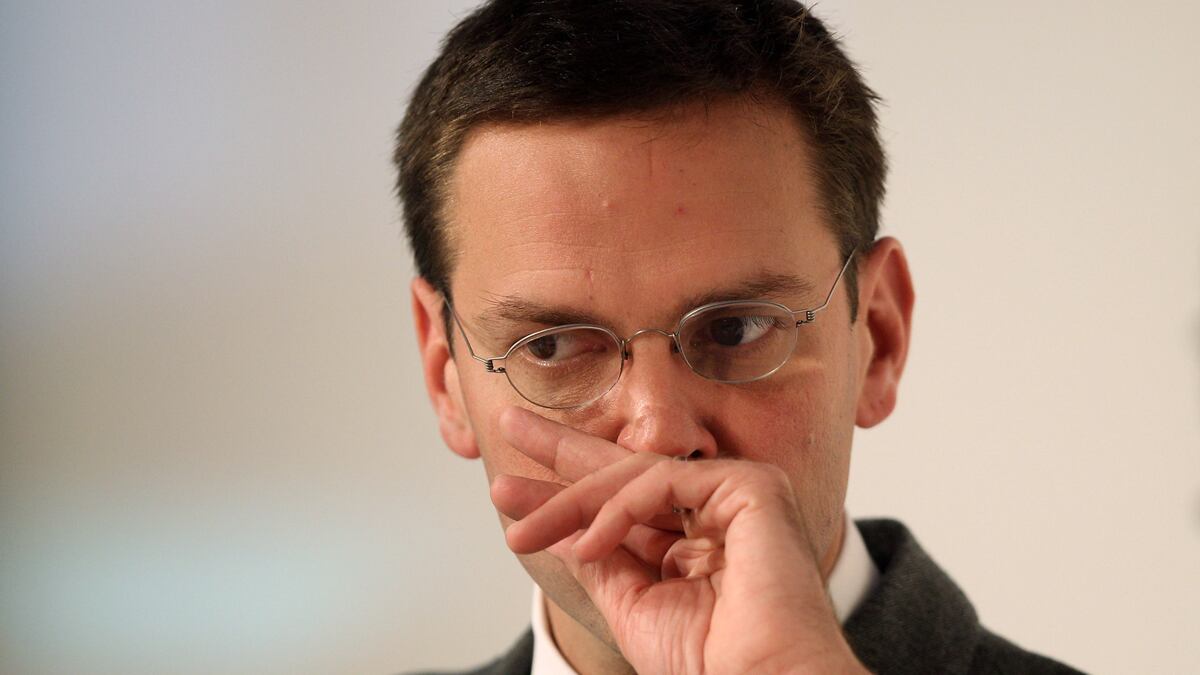The last time James Murdoch was grilled before Parliament, he insisted on a crucial point: he hadn’t worked to keep a lid the phone-hacking epidemic at News of the World because he didn’t know there was one. Following today’s release of a damaging batch of documents, that will be an even tougher case to make when he faces a second round of questioning next week.
The parliamentary committee tasked with the phone-hacking affair has published a series of notes and emails that cast further doubt on Murdoch’s claim, while showing that top officials in the company were well aware of the growing scandal in their midst. Emails exchanged between News Corp. lawyers in 2008—when News International, the U.K. subsidy run by the younger Murdoch, was gearing up for what would become a disastrous legal fight—warn of a “culture of illegality” and “overwhelming evidence” that senior journalists were involved. The correspondence also suggests that Murdoch was in the loop.
A memo written by Tom Crone, the News of the World’s legal chief at the time, notes the existence of a “damning email” that “proves we actively made use of a large number of extremely private voicemails.” The email in question, titled “For Neville,” has since become an integral part of the scandal. Sent by Glenn Mulcaire, the private detective News of the World had hired to hack phones, and addressed to Neville Thurlbeck, the paper’s chief reporter, it contained transcripts from voicemails left on a top football official’s phone.
The email has been considered a smoking gun that shows News Corp. officials knew the hacking problem extended beyond royals correspondent Clive Goodman, who had been jailed for it in 2007. Until recently, News Corp. had insisted that hacking was confined to Goodman, calling him a “rogue reporter.” The official in question, Gordon Taylor, had caught wind of the email and launched a lawsuit.
“Our position is perilous,” Crone wrote in the memo—which he went on to note would be used as the basis for an upcoming talk with Murdoch.

It’s this portion of the document dump that could come back to haunt Murdoch when he goes before Parliament’s media select committee Nov. 10. When he appeared for his first round of questioning this summer—along with his father, News Corp. head Rupert Murdoch, in a highly publicized affair—James was asked specifically about the $1.2 million payment to Taylor that he eventually approved. He’d only approve such a large amount, MPs suggested, if he knew the scale of the problem a confidential settlement would mask. James insisted that wasn’t the case.
The committee didn’t seem to buy it. “There’s a lot more to come,” Tom Watson, the Labour MP who has led the phone-hacking charge, told Newsweek after the hearing. In the weeks that followed, Crone and Colin Myler, another senior lawyer, both informed the committee that Murdoch’s testimony wasn’t true, saying he was fully briefed when he agreed to the settlement.
Murdoch, though, has insisted on toeing the line, even writing a letter to the committee doubling down on his claims. In statements today, meanwhile, News International continued to back him. “James Murdoch has been clear and consistent in his testimony,” a spokesperson told Reuters.
Last week, over a third of News Corp. investors gave Murdoch a “no confidence” vote, a warning shot for his handling of the crisis so far. As the steady drip of bad information continues, they may be readjusting their sights.





